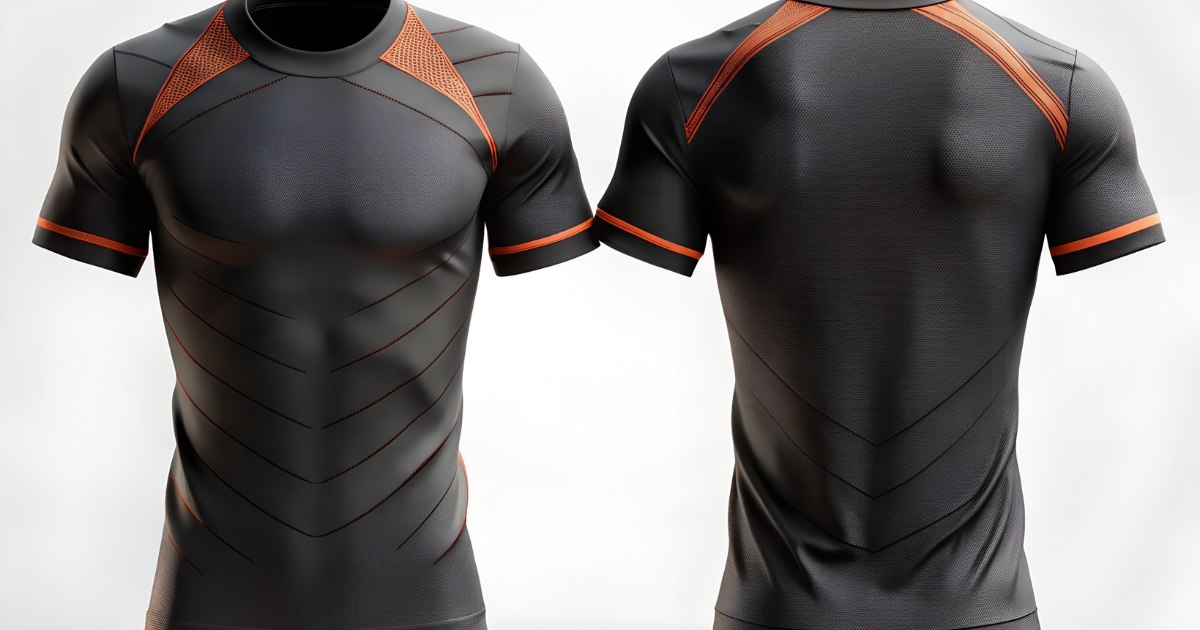There’s nothing worse than having your day start with fabric frustrations. Sleeves too short, pants too bunched, shirt pulling in all the wrong places. But what people don’t realize about such clothing psychologies – something hinted at, but never outwardly spoken, in the depths of the fashion conversation – is that clothing not only looks bad, but makes us feel bad about ourselves, and how we want to start each day.
Fabric frustrations take the mind to a comfortable but semi-invasive place where body image and body confidence are challenged at every level from the moment we wake up to when we go to bed. Over time – and especially for those whose body types or sizes make it harder than easier to achieve proper fit – this gets even worse.
Clothes Don’t Fit And It’s A Constant Frustration
There is something to be said for getting dressed in the morning, it’s a means of preparation for the day ahead; however, what’s it like when someone knows it’s no good fit from the very moment they open their eyes? All it takes is an unconscious realization that everything in their wardrobe will do them justice to ensure that their day starts on a positive note. Unfortunately for those who have no confidence that anything will be a good fit for them ever, this optimistic idea never occurs.
The constant lack of fit breeds physical discomfort and subsequent mental distraction. Be it constantly tugging on the too big sleeve or fighting against the uncomfortably tight dress, no one is without awareness whenever they look in the mirror in an attempt to adjust. And while that adjustment may seem like par for the course of daily living, it’s exhausting.
Furthermore, when people enter social and professional situations where there’s no need to focus on minutiae, they squander valuable brain power holding it all together because their clothing doesn’t fit. We have enough resources to focus on stimulating conversation, deadlines and relationship building; why should half of our brains be devoted to looking presentable just because clothing doesn’t fit?
Fit helps us feel good about ourselves; clothes that fit breed confidence and body image positivity for all. Clothes that don’t fit allow their wearers to validate illusions of their negative sense of self. It’s much easier to blame material – even if it frustrates them on a daily basis – than to acknowledge a bad fit of fabric on a lamentable body.
Breaking Free from Trend Obsession
The fashion industry has traditionally focused on specific body types, which creates psychological challenges for those who don’t fit the standard mold. When clothes consistently don’t fit properly, it compounds the mental burden for people who are already dealing with everyday stresses and insecurities. Specialized retailers like Just Tall and other niche websites address specific needs – in this case, women and men who are significantly taller than average require different proportions and measurements. Unfortunately, many people endure years of poor-fitting clothes and the resulting insecurity before discovering these specialized options. When they finally find clothes that actually fit, the psychological impact can be profound and transformative, extending far beyond just feeling good about their appearance.
When someone gets accustomed to wearing uncomfortable clothes it’s difficult for them when they put something that’s right on the first time and don’t want to go back – but they don’t have to. The momentum shifts, brings value – and confidence – that transcends beyond simple fabric realities into other realms of life.
The Fit Gap Links Clothing Psychology To Life
Regardless of any advocated clothing psychology, one can adhere for themselves, clothing serves as a form of nonverbal communication. People want to project who they are and what they believe and how detail oriented they are – but clothes that don’t fit communicate their own message beyond what anyone ever wanted.
Professional situations allow women – and men – to justify their competency by virtue of their clothing. A poorly fitted blouse or jacket will overshadow everything on an immaculate resume filled with accolades with no relative force merely because credibility isn’t there by virtue of looking decent. Thus the intersection between clothing psychology makes people work harder than they have to by virtue of their nonverbal communication simply because whatever they have doesn’t fit.
Social situations make this even more complicated; there should be no minutiae revolving around clothing when people should focus on enjoying the social aspects of life, yet constantly adjusting takes away from what’s most important and creates an unnecessary sense of self-loathing that only should occur within one’s home in front of a mirror. It shouldn’t be confined socially as well.
The Pressure To Fit Dominant Fabric Trends (Not Body Trends)
Beyond all this pressure to fit proper body standards across social arenas, mass branded trends usurp what’s practical in day to day living for why? Because someone knows that there’s no up-and-coming trend that’s ever going to fit them – everything comes from sample sizes from specialty brands and that’s good enough before they come into the mainstream.
Clothing psychology benefits from legitimate assessments based upon permanence. Are these things trendy? Probably not. But who cares? As long as it feels good – or fits well enough right – and provides peace of mind – instead of confidence out the door – who cares how much was spent on it? At least it should equate to better psychology instead of paying average dollars for poorly fitting clothing.
It’s easy to say it’s not worth the peace of mind over hard reality standings when all someone seeks is something that would generate buzz; the longevity and practicality mindset is key since quality clothing almost always comes with an upcharge anyway.
In reality spending more on better clothing focuses on reality instead of real-life costs – they’re costs for paying psychological peace – for someone who merely wants to feel better about themselves because clothes should have fit as intended all along.
Clothing Psychology Benefits
There’s so much body politics today regarding clothing but psychologically speaking – the effective alternatives – the effective language of psychology falls short too often about fabric revolution – and not just cliché patterns – but as a form of self-advocacy where people should benefit tremendously from down the line.
When clothing fits well enough you forget you’re wearing it – a psychological freedom that comes with this feels exponentially better than appropriately doing something for the first time and ultimately down the line without any qualifying credit or professional expert knowledge required.
Clothing psychology needs to be championed based upon fabric instead of unnecessary focus deriving solely from trending avenues; so much more appreciation could come down the line than any unnecessary uncomfortable fabric ever could allow.










